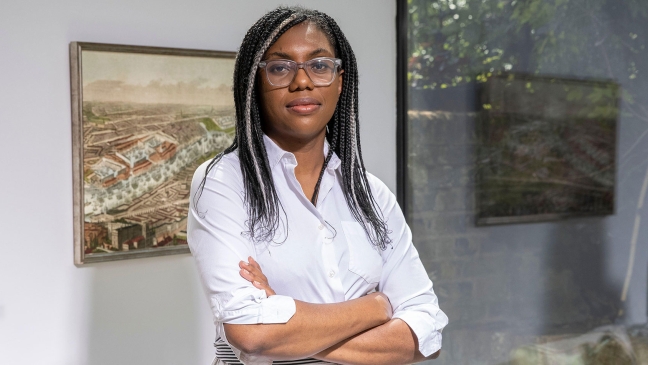For people who don’t know a lot about what happens in schools, teaching assistants are always a target. Why, if a teacher is doing their job properly, would you need an extra body in the classroom? What a luxury!
Conservative Party leadership candidate Kemi Badenoch (pictured) was the latest to voice a version of this trope this week when she said schools needed to focus resources on teaching, not “superfluous” staff*.
Headteachers must have looked around their chronically understaffed schools and at their overworked staff and been sorely tempted to do an Andrea Jenkyns (though they would have refrained, of course, because they actually understand the responsibility of a public role).
The value of teaching assistants
It would be bad enough if this constant attack on TAs was confined to those looking into the sector, but, unfortunately, lazy arguments can sometimes seep into the minds of those who should know better. I have heard too many policy proposals from education experts that have a very loose grasp of TA pay and conditions and a puzzling lack of understanding of what it is a TA actually does in most schools and how those roles would continue to be played without a TA in place.
If we take it as a given that the above views show a complete lack of recognition of how our current, legally enforceable special educational needs and disability (SEND) system works, there are clearly also experiential and philosophical issues in play here.
On the former, we know from the excellent work of Dr Rob Webster and colleagues that TAs are frequently used ineffectively. We know teachers don’t get enough training on how to utilise TAs, and we know schools frequently don’t have the time or resource to allocate provision according to best practice. As such, some experience of a TA may seem wasteful and some teachers do have good reason to worry about how useful a TA actually is in their context.
However, what people frequently miss from Dr Webster’s work (and they shouldn’t miss it, as he has written for Tes frequently spelling this out, including here and here) is that when used in targeted ways, in collaboration with a teacher, in a properly resourced way, with proper training, the TA can be one of the most effective teaching resources in our schools.
If policy and government commentators paid attention to this, and helped to facilitate conditions that make it happen, the school experience of TAs would undoubtedly be better.
What is education for?
As for the philosophical side of the debate, TAs are often a casualty of an argument about what we want education to be. If we take the myopic view of education as a journey into academic knowledge, with any pastoral concerns largely taken care of by parents or the state away from the school gates, then having a TA can, in some circumstances, seem questionable.
But humans are messy and complex. Education cannot exist in a vacuum from society. Yes, schools need more help on all that is not academic, but also all of that has to be considered as at least part of the job.
Often the TA is crucial on this side of things. They are usually living in the community that the school serves: they understand the problems, know the families. And while this may also be true of the teacher, the TA is coming from a different experience base, which allows them to relate to pupils on a different level - a level that can be the difference between a child behaving or not, a child attaining or not, a child coming to school or not.
All this is not to say that a long, detailed look at the role of TAs in schools would not be beneficial. It certainly would. But it should only be done by those with a good understanding of the evidence base, of the pressures on schools, of the philosophical arguments about education, of the nuances of individual schools, of the legal requirements of SEND and adult-child ratios, and with honest teacher testimony (ideally it would be done by those working in schools primarily).
Anyone coming to the table with an opinion without all of that? Well, I would argue their viewpoint is superfluous.
Jon Severs is editor at Tes
* Note: She has since tried to clarify her comments in an interview (at 16mins55 here)





